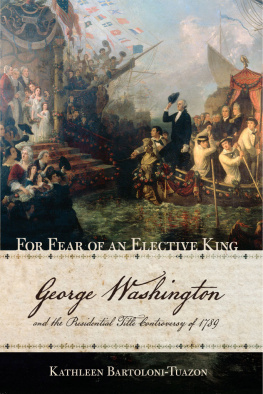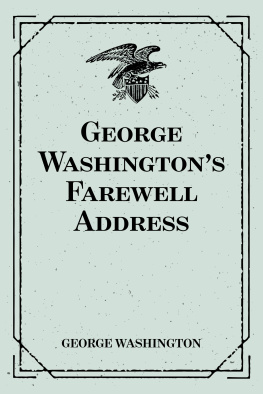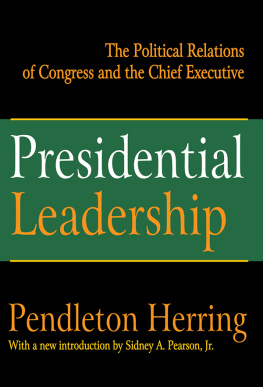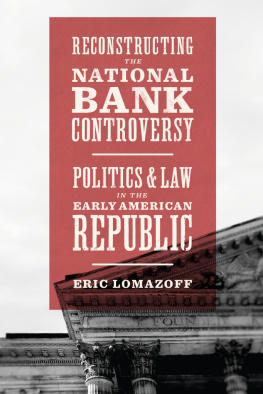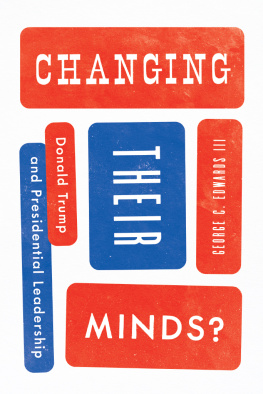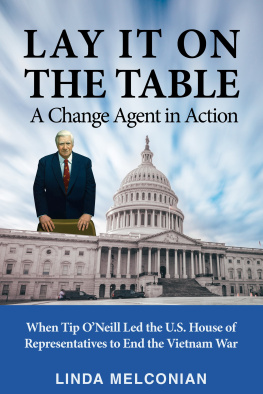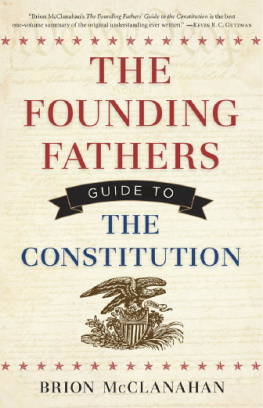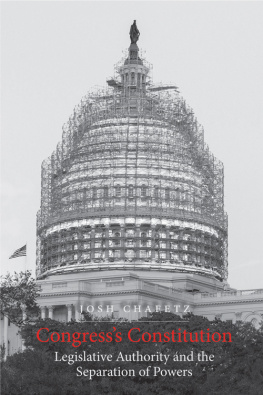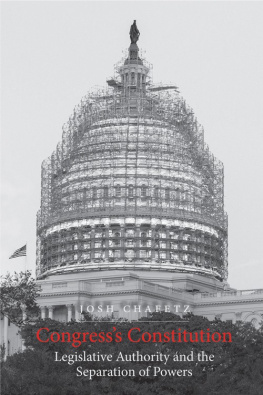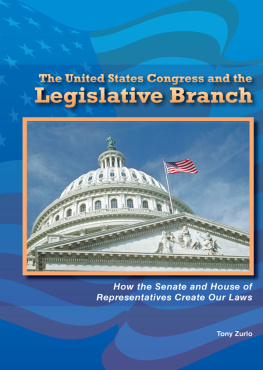ACKNOWLEDGMENTS
My story of the title controversy began with the archives and exemplary documentary editors of the First Federal Congress Project (FFCP) in Washington, DC. With unflagging good nature, Charlene Bickford, Kenneth Bowling, William (Chuck) diGiacomantonio, and Helen Veit answered my questions, gave lessons in manuscript reading, and shared my excitement with discoveries big and small. The high standards of the FFCP are testaments to their professionalism. My historians work ethic and understanding of research methods has blossomed in my time working with them. Ken Bowling also provided insights on the revolutionary era and the early Republic that saved me more than once from shallow or over simplified interpretations and challenged me to dig deeper. I am grateful for their time and efforts on my behalf.
Richard Stott of George Washington University (GWU), in his calm and steady way, contributed immensely to my understanding of the eras historiography. Other historians at GWU also proved inspiring and supportive. In particular, James Horton offered pivotal help on my argument, Dewey Wallace honed my understanding of religions place in eighteenth-century America, and Andrew Zimmerman happily brainstormed on theoretical concepts. Elizabeth Fenn, now at the University of Colorado Boulder, had faith in me from the earliest days and braved the hot Potomac summer to support me, as did Tyler Anbinder and Tom Long. And Denver Brunsmans advice as I developed my manuscript has been as helpful as his collegial generosity has been appreciated.
I am also grateful for the assistance given by Barbara Austen of the Connecticut Historical Society Museum, Elaine Grublin and the Adams Family Papers staff of the Massachusetts Historical Society, the Guggenheim Library, Leo Hershkowitz, James Hutson, John Kaminski, and Reverend James Smylie. In addition, I thank Jack Greene and the late Edmund Morgan, both of whom took me seriously and answered my inquiries.
I also benefited from the incisive feedback given by my writing group, and Andrew Bell and Varad Mehta, especially, kept life lively through noisy book group lunches and other excuses for winding history discussions. In addition, Judy Jashinsky, friend and history painter extraordinaire, thoughtfully collaborated in my research of eighteenth-century political cartoons. Family and friends, far and wide, encouraged me along the way. I thank you all.
My relationship with Cornell University Press (CUP) has been particularly beneficial. My manuscript became much more completely realized through the excellent feedback of the anonymous readers, and I am indebted to them for the attention they gave to my project. Editor Michael McGandy and the entire team at CUP have been upbeat, clear-eyed, and patient. My experience with CUP has been everything I could have hoped for, and I am fortunate to have such a sterling group at my side.
Finally, and most significantly, my husband Raul and daughter Francesca listened, discussed, and championed my ideas and dreams. This book is the culmination of the immeasurable love and support I have received from the home team, and I will never forget that. I offer my thanks, more than I can ever express.
Introduction
The Title Controversy and the Early Presidency
In the early spring of 1789, newly elected senators and representatives of the First Federal Congress arrived in New York City, committed to the implementation of the stronger federal government mandated by the Constitution. Within weeks, Congress became embroiled in a dispute over how to address the presidentthe Senate majority favored a lofty title, while the House stood unanimously and adamantly opposed to anything more than the simple and unadorned President. Suggestions for a title ranged from President to His Majesty the President to various forms of the frequently used Highness, including the Senate-endorsed His Highness the President of the United States of America, and Protector of their Liberties. Congress, the press, and individuals throughout the country debated more than thirty titles, most with royal overtones. In a world full of monarchs and with the United States struggling for respect on the global stage, the eventual resolution in favor of the modest President of the United States, without an exalted prefatory appellation, remained far from certain.
Since the Constitution does not specify an executive title, the debate over whether or not to give the president a regal title represents an early consideration of constitutional intent, just as it also comprises the first dispute between the Senate and the House.
The fight over titles was hardly frivolous. The controversy explored an important constitutional question: How much like a monarch should the head of a republic resemble, particularly in the United States, whose revolution aimed at weakening the executive? Americas renunciation of monarchical government found one of its main expressions in the weak executives outlined in the revolutionary constitutions of the union and the states, executives whose power often was limited to executing the will of the legislature. Yet, six years after the Treaty of Paris ending the Revolutionary War, the new government featured a singular central executive for whom some in Congress contemplated grand titles. Just what kind of a president did the people and the country want and need? And, how did the question of a presidential title relate to the widespread use of titles in America?
When Vice President John Adams and others broached the question about titling the president, they instigated a conflict that marked a moment of revolutionary affirmation for the young nation and its Constitution. The presidential title controversy became the catalyst for a broadly based articulation of the fundamental nature of the countrys new representative democracy when Congress and a majority of the public rejected regal titles, monarchical trappings, and the form of society and governance they symbolized. With its outcome, the people of the early Republic accepted the presidency on the republican terms of a simple title and set the stage for Americas new breed of national executive, one who found no contradiction between democracy and strength.
Although George Washington stood as the electors unanimous choice as first president and enjoyed extraordinary public support, the untried presidency aroused dissent and apprehension. The Constitution outlined a chief executive elected for a four-year term, but delineated no term limit. Consequently, the office alarmed many critics of the proposed government because of its resemblance to monarchy. The substantial though vaguely defined powers of the president led to conflicting interpretations of dangerous strength or disastrous weakness.
The American people feared both monarchy and the political corruption that can accompany it. The conflict over a presidential title arose when these two fears aligned against each other in convoluted ways: foes of a regal title distrusted a strong, monarchical federal executive, while proponents worried about a weak and easily intimidated one that nonetheless had the sway of a monarch. Alarmed that a president would prove corruptible and a puppet of state elites or world leaders, John Adams and Senator Richard Henry Lee of Virginia advocated for a lofty title to boost executive authority. Even though a strong president also could prove unscrupulous and corrupt, they viewed all-powerful Senate dominance over an anemic national leader as the greater and more present danger. The other side of the controversy dreaded a despotic, all-powerful president. Abhorrence of monarchical rule and the resultant loss of representative governance fed a fierce resistance to an exalted honorific by Senator William Maclay of Pennsylvania and Representative James Madison of Virginia, as well as the rest of the House.

